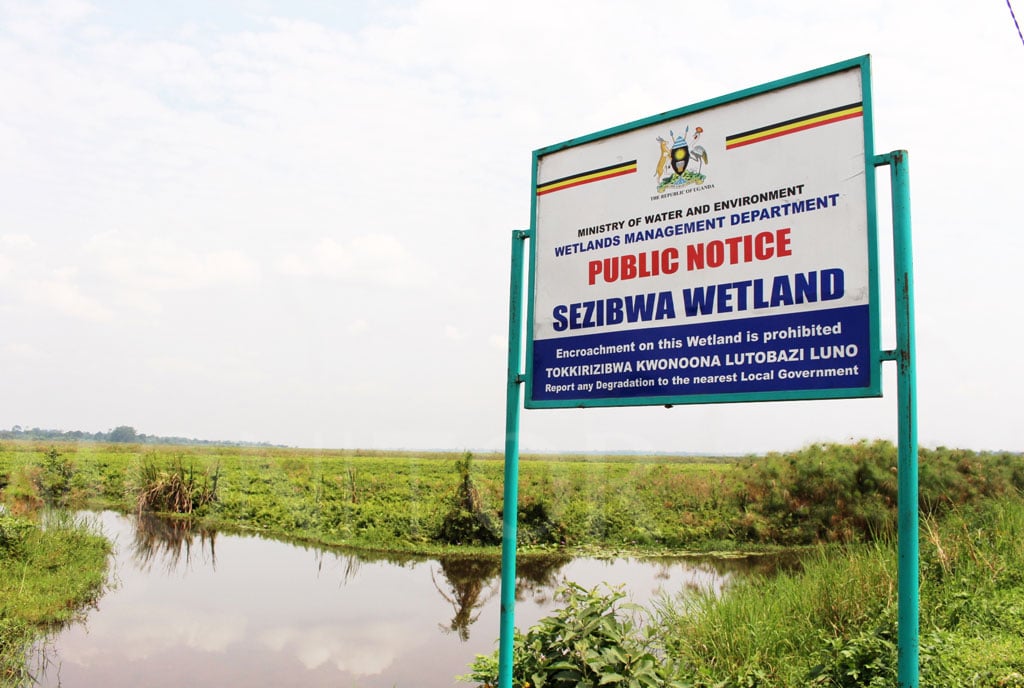Buikwe river on the brink as pollution poisoning intensifies

A resident washes his face near a bridge on River Musamya in Buikwe District on September 28. PHOTO/HERBERT MUGGAGA
What you need to know:
- Residents now want a team of experts, including the National Environment Management Authority (Nema), to investigate the extent of contamination.
Communities that derive their livelihoods from River Musamya in the central parts of Uganda have raised the red flag over contamination of the water body in Buikwe District.
Some residents in Kawolo Sub-county and Lugazi Municipality claim factories, especially distilleries, are releasing waste into the river, whose water colour has turned to brown.
While the communities are not very sure about the extent of contamination, including the possibility that the water could be unfit for human consumption, they now want a team of experts, including the National Environment Management Authority (Nema), to investigate the extent of contamination.
Mr Joseph Balikudembe, a resident of Kawuku Village in Kawolo Sub-county, said Nema should also apprehend those contaminating the river.
“My family depends on this water for domestic use. We are often forced to abandon the use of the water when it turns brown. Even our livestock including the cows and goats consume the very water. We need to be helped to have the contamination halted,” he said.
Mr Balikudembe added: “There is a foul smell when one is near that river because it is contaminated.”
Industrialists in Lugazi and Kawolo areas have also complained about contamination.
Officials from the Sugar Corporation of Uganda (SCOUL) and Mehta Group of Companies say they have expressed similar concerns over the level of contamination of the water by some distilleries yet the river serves a big population of their workers.
Mr Patrick Zikusoka, the senior manager administration at SCOUL, told Daily Monitor on September 28, that the company has informed Nema about its concerns regarding the river.
He accused some alcohol distillers of deliberately disposing of their waste into the river.
“Some of the distilling companies built near one of the major tributaries of the River Musamya. We believe that the contamination of the water comes from some of these industries. We have officially contacted Nema to investigate,” he said.
Mr Timothy Muwonge, the environment manager at SCOUL, said waste from the distilleries can be turned into manure.
“Unlike some of the distilleries that have failed to manage the spent wash, we at SCOUL turn the spent wash into manure after channelling it into a treatment process. This is used at our own cane gardens as manure,” he said.
However, Mr Sezi Moses , who owns a distillery near the river’s tributaries, denies accusations of contamination.
“We are very careful and have always taken precaution while dealing with the spent wash from our industry because we mind the environment. The spent wash talked about is not from our industry,” he said.
Mr Sezi added: “We beg Nema to come and inspect our company to prove that the allegations are not true. Our spent wash is collected at the designated lagoons and where it is picked and used as manure.”
Mr Edward Smith Namakoola, a conservationist based in Lugazi Municipality, wants Nema to develop a special mechanism on how water contamination at the different water bodies can be reduced.
“The contamination at sections of River Musamya is not just at one point but several distilleries empty spent water into the river at different stages. The water contains chemicals that are not only dangerous to human life but endangers aquatic life too,” he said.
Environment officer responds
Charles Lwanga, the Lugazi Municioality environment officer told this publication that Nema received the water contamination concerns by SCOUL and visited Sezi Agencies Limited to find out about the level of contamination as alleged by the complainants.
“We found some anomalies that could have led to the contamination of the water but were rectified. We are now monitoring the industry to see if our recommendations are in place to avoid further contamination of the water,”Mr Lwanga said.




